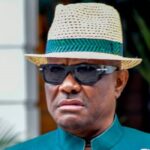Socio-Economic Rights and Accountability Project (SERAP) has called on World Bank President Mr David Malpass to exercise the bank’s prerogative to release archival records and documents relating to spending on all approved funds to improve access to electricity in Nigeria between 1999 and 2020.
SERAP also seeks to get the bank’s role in the implementation of any funded electricity project, and to identify and name any executed projects, and Nigerian officials, ministries, departments and agencies involved in the execution of such projects.
- NAFDAC shuts food coy for revalidating expired curry, thyme
- 18 villagers killed as bandits strike again in Kaduna
The World Bank Board of Directors had last week approved $500m “to help boost access to electricity in Nigeria and improve the performance of the electricity distribution companies in the country.”
But in the application dated February 6, 2021, and signed by SERAP deputy director, Kolawole Oluwadare, the organisation urged the bank to “explain the rationale for the approval of $500m to implement electricity projects in the country, despite reports of widespread and systemic corruption in the sector, and the failure of the authorities to enforce a court judgment ordering the release of details of payments to allegedly corrupt electricity contractors who failed to execute any projects.”
The organisation said that it was seriously concerned that the funds approved by the bank are vulnerable to corruption and mismanagement.
“The World Bank has a responsibility to ensure that the Nigerian authorities and their agencies are transparent and accountable to Nigerians in how they spend the approved funds for electricity projects in the country, and to reduce vulnerability to corruption and mismanagement,” it said.

 Join Daily Trust WhatsApp Community For Quick Access To News and Happenings Around You.
Join Daily Trust WhatsApp Community For Quick Access To News and Happenings Around You.

